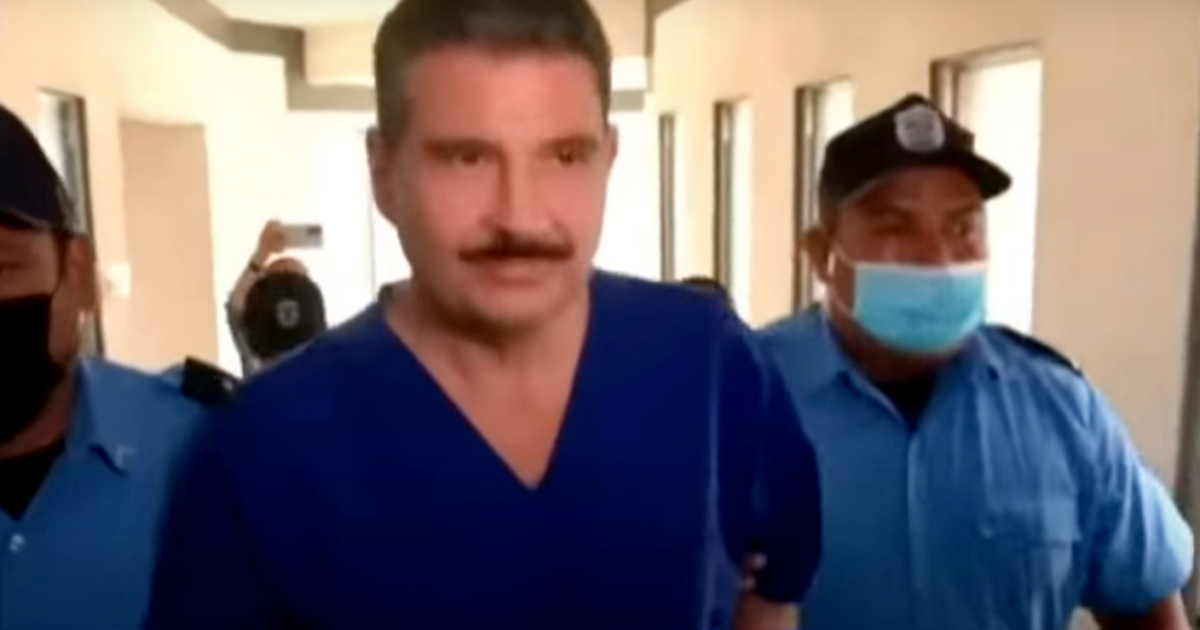
The government of Spain, headed by the socialistPedro Sanchez, offered the nationality of that country to themore than 200 Nicaraguan political prisoners exiled to the United States by the regime ofDaniel Ortega.
The offer, which recalls the one made by Spain in 2010 with prisoners of the Cuban Black Spring and their families, was announced by the Minister of Foreign Affairs,Jose Manuel Albares, as later confirmedWHICH with ministerial sources.
According to the Spanish agency, the gesture was highly valued by the opposition leaderJuan Sebastian Chamorro, one of the former presidential candidates imprisoned during the last elections in Nicaragua.
“I am sure that many of the political prisoners are going to see this as an option,” Chamorro said in a virtual press conference in which he thanked Spain for having worked intensely in recent years for the democratization of Nicaragua.
The United States, in turn, stated this Friday that it was in contact with Spain to make it easier for those released from prison to apply for Spanish nationality if they wish. TheBiden administration He assured that they left the country voluntarily and will remain in the United States on parole for humanitarian reasons for two years.
The recognition of the "voluntariness" of going into exile is a formality that conceals a deportation with which third countries could not collaborate without becoming accomplices in the violation of the human rights of the exiled.
In that sense, the United States confirmed that they had given their consent to leave Nicaragua, whose regime declared them “traitors to the country” and “disqualified for life from holding public office.” The Nicaraguan judge expressed it in these terms on official television.Octavio Rothschuh, when reporting on the order of “deportation of 222 people.”
“The deportees were declared traitors to the country and punished for serious crimes and perpetually disqualified from exercising public function in the name of the service of the State of Nicaragua, as well as holding elected positions, with their citizen rights suspended in perpetuity” , he indicated.
The 222 political prisoners unilaterally released last Thursday were put on a plane to Washington without being informed of their fate. American authorities would have contacted their Spanish counterparts to explore their willingness to welcome the exiles and grant them the nationality of that country.
“We have been in communication with Spain. There is a possibility that some will explore offers from other countries,” he toldWHICHthe deputy undersecretary of state for Latin America,Emily Mendrala, who clarified that the future of those released will depend “on the situation and preference of each one,” and that trips so that they can reunite with their families in different parts of the United States will be facilitated by the State Department.
In addition, it will offer legal assistance to those released, who were stripped of Nicaraguan nationality, so that they can “choose the options that make the most sense for them,” including the opportunity to go to Spain.
Accompanied by the also released and former presidential candidateFelix MaradiagaChamorro thanked all the civil organizations and governments that showed them support during the months they spent in prison.
“The gratitude to Spain is particular because it took up the issue of political prisoners and democratization many years before and has shown that commitment to Nicaragua and the Nicaraguans,” he noted. According to the opposition leader, it is “a generous offer that fills us with hope.”
“There are a couple who have relatives in Spain and I am sure that it is an extremely important humanitarian action and I am extremely happy that the initiative has been taken that shows the importance of the international concert of countries working for political and human rights,” he stated. .
Spain's offer is reminiscent of the one made by the government ofJosé Luis Rodríguez Zapatero with the Cuban prisoners of the Black Spring. At that time, 40 Cuban opponents, of the 52 who remained in prison and were released, chose to move to Spain.
The agreement included their closest relatives, with which more than 350 Cubans flew to Madrid in 2011, suffering different fates. After protests over the situation of abandonment and helplessness in which they were left, many chose to go to the United States and other countries, while a few decided to remain in Spain.
Twelve years later and with a new socialist executive, Spain once again mediates in the political crises of Latin American dictatorships, offering Spanish nationality to those released from the Ortega regime; an extensive offer to political prisoners who remain in prison, and who could be stripped of their nationality for “treason against the country.”
What do you think?
COMMENTFiled in: